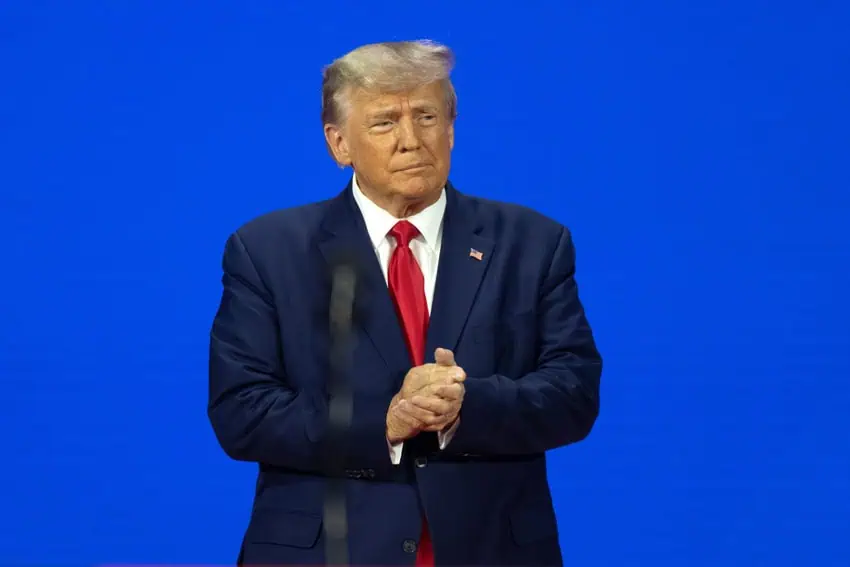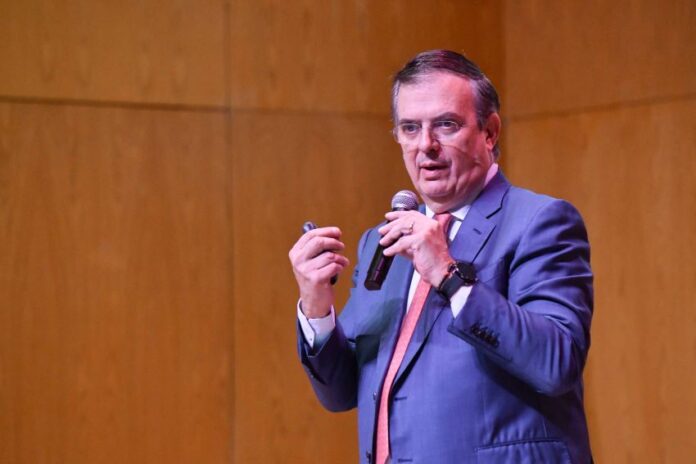Economy Minister Marcelo Ebrard is confident that Mexico will find a way to avoid the high tariffs threatened by U.S. President-elect Donald Trump.
Speaking Friday at a conference in Mexico City, Ebrard expressed optimism regarding the upcoming review of the USMCA — which maintained zero tariffs on products that had zero tariffs under NAFTA — because of Mexico’s positive results on security and migration issues.

The economy minister also asserted that Trump’s proposed protectionist policies would backfire on the United States.
“You can’t have low inflation and sustained economic growth in the U.S. if, at the same time, you’re rolling out strong protectionist policies against Mexico and China,” he said, according to the news agency Reuters. “That’s a key advantage for Mexico.”
Ebrard also recalled the success he had negotiating tense trade talks eight years ago during Trump’s first term as president, during which the North American Free Trade Agreement was updated and renewed as the United States-Mexico-Canada Agreement (USMCA) for an additional six years. As Mexico’s foreign minister at the time, Ebrard helped prevent the imposition of big tariffs linked to the migration issue.
“In the end, there were no tariffs or treaties, because we found a way out,” Ebrard said, according to Reuters. “I guarantee you we’re going to find [a way out].”
Set to take office in one week, Trump has again promised to apply broad tariffs on Mexico if it does not crack down on migrant arrivals at the Mexico-U.S. border and do more to halt the smuggling of illegal drugs, particularly fentanyl.
Ebrard insists that Mexico has made strides in the battle against organized crime and is confident an agreement can be reached, according to the news magazine Expansión.
He also pointed out that U.S. officials recognize that part of the problem is the unrestrained weapons trafficking from the United States that benefits the drug cartels in Mexico. Expansión reported that the Sinaloa Cartel acquires roughly 85% of its weapons from the United States. Additionally, from 2018 to 2024, more than 3,600 weapons were seized at the Mexican border, and another 3,600 weapons have been seized since President Claudia Sheinbaum took office on Oct. 1, 2024.
